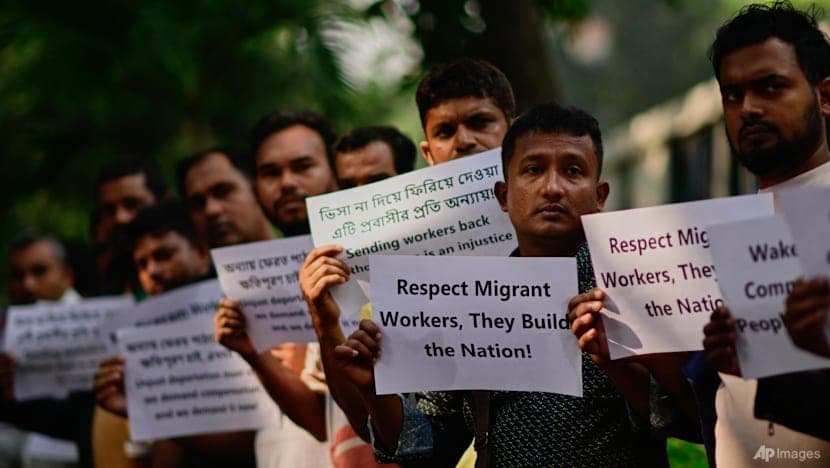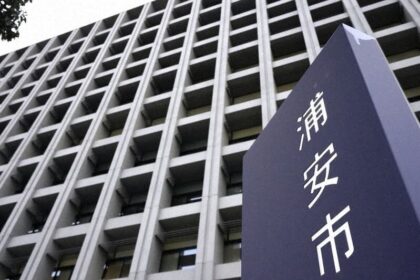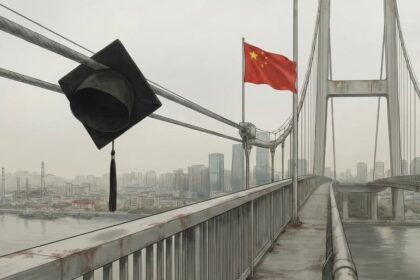New push for justice as unpaid wages and abuse claims mount
About 100 Bangladeshi workers who had been employed in Malaysia gathered outside the Ministry of Expatriates’ Welfare and Overseas Employment in Dhaka to demand unpaid wages, fair compensation and an end to what they describe as widespread abuse. The action, coordinated by the Migrant Welfare Network, focused attention on two Malaysian companies, Mediceram and Kawaguchi Manufacturing, and on the multinational buyers linked to their factories. Organizers say 431 Bangladeshi workers were denied lawful pay and basic protections while toiling in manufacturing jobs that help feed global supply chains.
- New push for justice as unpaid wages and abuse claims mount
- Who are the workers and what are they demanding
- Kawaguchi case shows the cost of wage theft
- Mediceram, gloves and a complaint involving Ansell
- Why recruitment fees push migrants into debt bondage
- How supply chains and governments are responding
- What to Know
The protest combined individual grievances with a broader call for accountability. Workers and advocates want Malaysian authorities to enforce labor court rulings, compel employers to pay what is owed, and allow migrants to change jobs without delay when employers shut down or violate the law. They also urged buyers, including brands in Japan and Australia, to play a direct role in remedy. Migrants described months without wages, passport confiscation, poor housing, and pressure that made them fear detention or deportation if they spoke out. Many have returned to Bangladesh with debts and no settlement.
Migrant labor powers large segments of Malaysia’s economy, from electronics and plastics to gloves, plantations and construction. Employers often recruit from Bangladesh, Nepal and Myanmar for jobs that local workers shun because of low pay and difficult conditions. That reliance, paired with high recruitment costs and weak enforcement, has left many migrants trapped between debt and the threat of job loss. It has also linked factory conditions in Malaysia to the reputations of international brands that source parts and products there.
Who are the workers and what are they demanding
The Dhaka demonstrators say two situations illustrate a wider pattern. First, a wage dispute at Kawaguchi Manufacturing that affected hundreds of Bangladeshi employees. Second, a group of Mediceram workers who say both pay and work permits were mishandled despite a ruling in their favor from a Malaysian labor tribunal. The network supporting the workers is pressing for full wage repayment, compensation for harm, and a formal remedy plan that prevents repeat abuses.
Many who joined the rally had already returned home. They say they left Malaysia after prolonged nonpayment and deteriorating conditions. Debt taken on to secure jobs abroad, often at high interest, only deepened their hardship after pay dried up. Their message was directed at companies and officials in both countries, as well as at the international buyers whose orders give factories their lifeblood.
One recently deported worker leader, identified by organizers as Nironjan, said the group had asked for lawful treatment and were punished for it. He described how speaking up carried personal risks.
“We asked for our rights as humans but were treated like animals. Speaking up led to deportation and harassment, but we will continue to fight for justice.”
Kawaguchi case shows the cost of wage theft
Kawaguchi Manufacturing, a plastic parts supplier to major Japanese brands, closed its Port Klang factory after months of turmoil. Workers say wages were withheld for as long as seven or eight months before the shutdown late last year. A Malaysian labor tribunal later confirmed that more than 3 million ringgit in back pay and related sums were due, yet workers say only a fraction has reached them. The closure followed moves by key buyers to halt orders in response to abuse allegations, which removed the factory’s main source of income.
Many affected workers were moved by officials to other sites or plantations with poor conditions. Others waited months for permission to change jobs. Several returned to Bangladesh still owing money to recruiters or lenders. They say that after wages stopped, company payments were sometimes issued in small amounts labeled as food allowances, then ceased entirely as the shutdown loomed.
Omar Faruk, a former Kawaguchi employee who left Malaysia after the closure, recounted what those months felt like to him and his co-workers.
“We suffered for months without food or salary. When the company closed, we were left with nothing.”
Japanese brands connected to the supplier have taken steps that go beyond audits. Sony, Panasonic and Daikin have agreed to help reimburse workers for recruitment fees, an estimated commitment of about 1.3 million dollars. Companies say these programs aim to reduce the debt burden created before workers set foot on the factory floor. Advocates welcome fee repayment, yet they stress that reimbursement does not settle unpaid wages or interest charges owed to lenders. Workers are asking buyers to help ensure court ordered back pay is delivered in full and quickly.
Mediceram, gloves and a complaint involving Ansell
A group of former Mediceram employees say they are still owed wages and that their immigration status was put at risk when the company delayed permit renewals. Some who pressed the issue were deported, according to the Migrant Welfare Network. Workers say Malaysia’s Labor Court ordered Mediceram to pay 1,000 ringgit per month to settle arrears, but the company made only one installment before stopping. Complaints have also been filed over alleged forced labor tied to a key customer, the Australian glove maker Ansell, which sourced from Mediceram.
Harun Or Rasid Liton, who worked at the glove factory, described how the court order offered hope that soon faded when payments stopped.
“The court ruled that the company would pay 1,000 ringgit per month, but the company paid only the first installment and then stopped paying.”
Glove production is a cornerstone of Malaysia’s export economy. The sector expanded quickly during the pandemic and has faced repeated scrutiny over labor conditions. Several companies in the glove sector have previously faced trade restrictions in foreign markets after border authorities cited forced labor concerns. Advocates say consistent enforcement, accessible grievance channels and the ability to change jobs are critical to prevent abuses from recurring.
Why recruitment fees push migrants into debt bondage
Bangladesh to Malaysia migration is among the most expensive labor routes in the world. Official fee schedules suggest costs under 700 dollars. Workers describe real costs closer to 5,000 dollars once payments to recruiters and middlemen are included. Families often borrow to cover these sums, pledging land or taking loans at high interest. That debt can bind workers to an employer even when wages are late or conditions are unsafe. It can also deter reporting, because unpaid time off or dismissal makes repayment impossible.
Common red flags reported by the Dhaka protesters include passport confiscation, long shifts without proper overtime, cramped or unsanitary housing, and delays in renewing work permits. Each practice is a recognized indicator of forced labor by global standards set by the International Labour Organization (ILO), especially when paired with retaliation or threats of deportation. Workers who arrive in debt and then lose income for months are quickly pushed into crisis. The lack of savings and legal support makes early recovery unlikely.
How supply chains and governments are responding
Global brands connected to the factories have faced growing pressure to provide remedy, not only to police future suppliers. Sony, Panasonic and Daikin have stepped in to reimburse recruitment fees, and they have asked suppliers to fix violations. Companies say their codes of conduct forbid practices like passport retention and unpaid overtime. Worker groups argue that remedy should include full wage repayment, documented through independent monitors, and a clear plan to prevent retaliation against whistleblowers.
Advocates have also pursued formal complaints. A filing to Malaysian authorities targets alleged forced labor tied to Mediceram and to a major buyer, Ansell. On the government side, Malaysia has pledged to end forced labor indicators by 2030 and issued a National Action Plan on Forced Labour. Progress depends on effective inspections, swift collection of court awards and real mobility for workers who need to change employers. In a statement at the Dhaka rally, the Migrant Welfare Network underscored the human cost behind the legal language.
“These workers have built Malaysia’s industries and sustained Bangladesh through their remittances. They deserve justice, not deportation, debt, or silence.”
What to Know
- About 100 Bangladeshi former workers rallied in Dhaka seeking unpaid wages and fair treatment from Malaysian employers.
- Workers and advocates say 431 Bangladeshis were affected at two Malaysian companies, Mediceram and Kawaguchi Manufacturing.
- A Malaysian labor tribunal awarded more than 3 million ringgit in back pay for Kawaguchi staff, but only a fraction has been delivered.
- Mediceram workers say a court ordered plan to pay 1,000 ringgit per month stalled after the first installment.
- Some workers were deported after pressing for permit renewals and repayment, according to the Migrant Welfare Network.
- Recruitment fees to reach Malaysia can reach about 5,000 dollars, creating debt bondage when wages are delayed.
- Japanese buyers Sony, Panasonic and Daikin agreed to reimburse recruitment fees, yet workers say back wages remain unpaid.
- A complaint targets alleged forced labor linked to Mediceram and a key buyer, the Australian company Ansell.
- Advocates call for fast enforcement of rulings, immediate job mobility for migrants and penalties for abusive recruiters.
- Rights groups warn demand for migrant labor is rising as factories shift to Southeast Asia, increasing risks without stronger safeguards.












